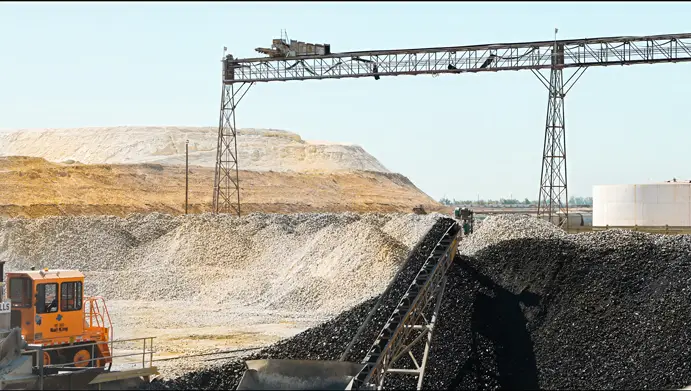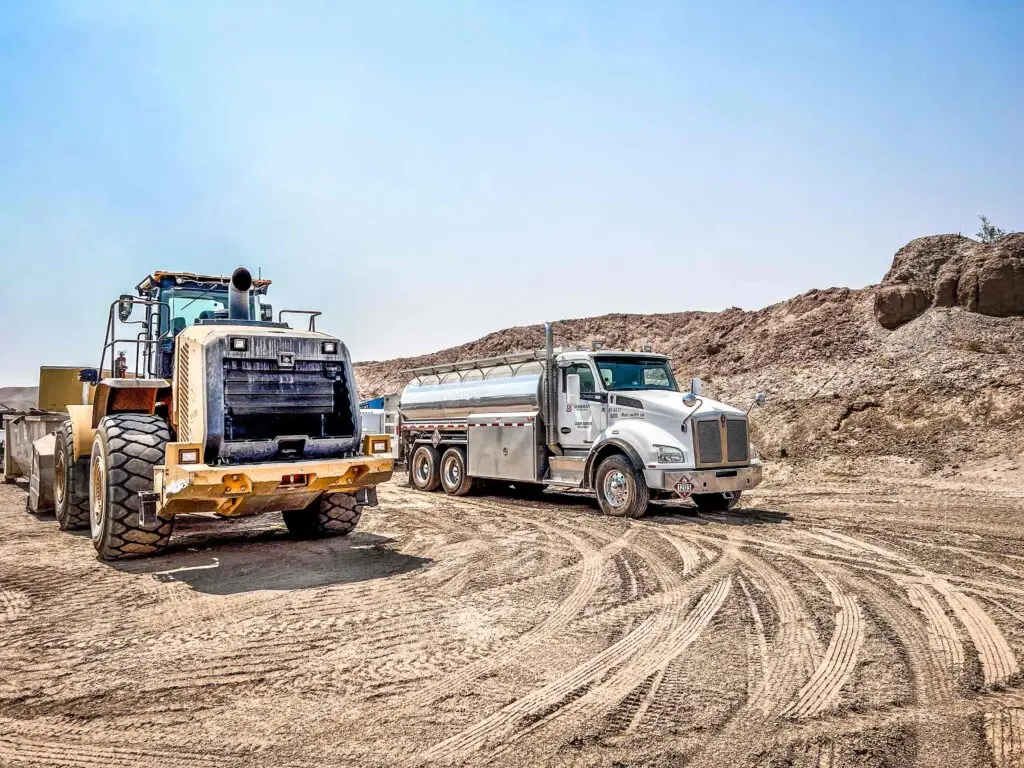Surface mining is the most common method used in our region. It involves removing the earth above mineral deposits, which allows for easier access to the materials below. Think of it like digging a giant hole to get to the treasure. In the Southwest, you’ll often see open-pit mining for valuable minerals like copper and gold.
At Senergy Petroleum, we’ve seen firsthand the immense fuel demands of surface mining operations. At mining sites, trucks transporting ore consume significant amounts of fuel within just a few hours, requiring frequent refueling to maintain smooth operations. Ensuring that the right quantity and type of fuel is available when needed is essential to avoid downtime. This is especially crucial in underground mining, where efficient fuel logistics are key to both operational efficiency and safety.
Underground mining is more labor-intensive and involves digging tunnels to reach minerals deep beneath the surface. While it’s not as common in all areas of the Southwest, it plays a critical role in places where minerals are too deep for surface mining.
Fuel requirements for underground operations can be quite specific. Equipment needs to be powerful enough to handle tough conditions while still being efficient. During a recent conversation with a fleet manager from an underground mine, he shared that they had switched to a higher-grade diesel to enhance performance. This decision not only improved the machinery’s efficiency but also reduced downtime, a critical factor in their bottom line.
Aggregate mining is another key player in our region, especially for construction projects. This involves extracting sand, gravel, and crushed stone, which are essential materials for building roads and structures. The connection between aggregate mining and local infrastructure projects is vital; without it, many of the roads you drive on wouldn’t exist.
Construction managers have highlighted that delays in fuel supply can set projects back by days, demonstrating that every minute counts in the industry. Efficient fuel delivery is essential for keeping projects on schedule and ensuring operations run smoothly without costly interruptions.
The mining industry relies heavily on diesel fuel due to its efficiency and ability to power heavy machinery. From massive haul trucks to drills, the right fuel is essential for smooth operations. There’s also a growing interest in alternative fuels that we’ve seen in the industry.
Mining companies are increasingly exploring the potential of biodiesel to reduce their environmental impact. Discussions have highlighted how biodiesel can support sustainability goals, presenting both benefits and challenges. Many companies are showing a commitment to environmental responsibility by considering alternative fuel options. While immediate transitions may not be feasible for all, this willingness reflects a broader trend in the industry toward sustainability, which we are proud to support.
Delivering fuel to mining sites can be challenging, especially in remote areas of the Southwest and Rockies. The logistics involved in transporting fuel to these sites require careful planning and coordination. When working with a customer operating in a remote location, we developed a tailored delivery schedule to ensure they always had the fuel they needed, even during harsh weather conditions.
Customized service is essential in the construction industry. Timely, last-minute fuel deliveries can prevent shutdowns during critical project phases, underscoring the importance of having a reliable fuel partner.
Fuel prices have a significant impact on mining operations, influencing both operational costs and project timelines. Fluctuations in fuel prices can force fleet managers to continuously monitor and adjust budgets. In cases of unexpected price spikes, such as during particularly volatile periods, fleet managers may need to quickly adapt by reducing operational hours and optimizing fuel usage. This highlights the importance of staying informed on fuel market trends to maintain efficient and cost-effective operations.


Safety is paramount in the mining industry, especially when it comes to fuel handling. Proper training and adherence to safety regulations can prevent accidents and ensure a safe working environment. We’ve helped implement safety protocols that include regular training sessions and audits to ensure compliance. By being proactive, you protect your workers while safeguarding your environment.
Mining can have a significant environmental impact, and it’s a topic that’s gaining more attention. Sustainable mining practices are crucial for minimizing harm to the environment. Many mining companies are now adopting eco-friendly practices, such as reducing waste and utilizing more efficient equipment.
At Senergy Petroleum, we’ve worked with customers focused on improving their environmental footprint. We’ve explored options for fuel-efficient machinery to help reduce both emissions and operating costs. This growing commitment to sustainability highlights how the industry is evolving toward more environmentally responsible practices.

Mining operations must also consider their impact on local communities. Maintaining good relationships with residents is vital for long-term success. Companies that engage with the community often find support and collaboration opportunities.
We’ve seen mining companies successfully implement community outreach programs to foster better relationships with residents. By organizing educational events about mining processes and their benefits, these companies improved community relations and gained stronger local support. This demonstrates the positive impact that effective communication and community engagement can have on mining operations.
The mining industry is seeing rapid technological advancements. Innovations are improving efficiency, safety, and sustainability. From autonomous vehicles to advanced data analytics, technology is reshaping how mining operations are conducted.
One of our customers recently implemented new software to optimize fuel usage. By analyzing real-time data, they were able to adjust fuel orders based on equipment performance, leading to cost savings and reduced waste. This example highlights the benefits of leveraging technology to enhance fuel efficiency and operational effectiveness.
Mining plays a crucial role in the economy of the Southwest and Rockies, impacting various industries, especially for commercial fuel buyers like you. Understanding mining operations, fuel requirements, safety, and future trends is essential for making informed decisions.
As you navigate the complexities of fuel procurement for your operations, remember that communication with your fuel supplier is key. Whether you’re managing a construction site or a vehicle fleet, having a reliable partner can make all the difference in ensuring smooth operations.
Together, we can ensure your projects run smoothly and efficiently while keeping safety and sustainability at the forefront.

